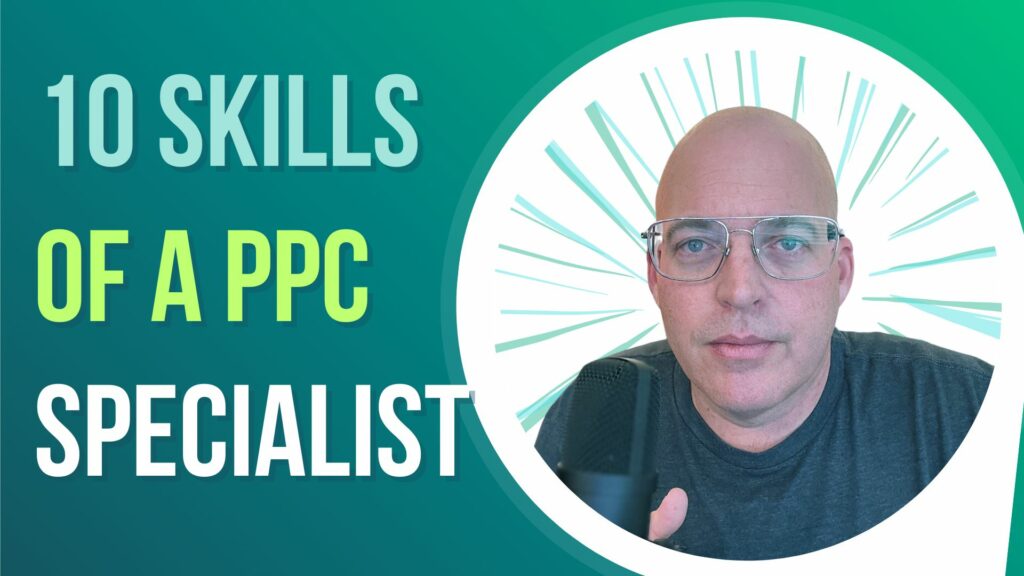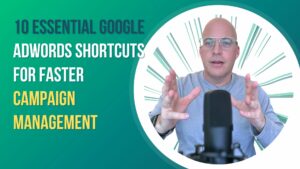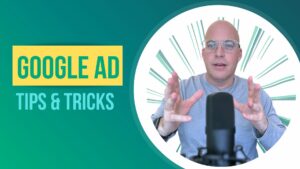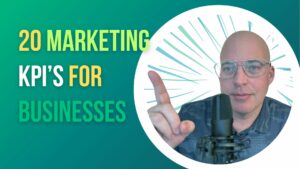Pay-per-click (PPC) advertising requires a PPC Specialist. It is a cornerstone for generating immediate results and high-quality leads in the ever-evolving digital marketing domain. Unlike SEO and content marketing, which often take time to mature, PPC can drive instant traffic, making it a go-to strategy for businesses looking to scale quickly. As consumers increasingly turn to the digital space to interact with brands, shop, and gather information, PPC campaigns can target specific audiences with pinpoint accuracy, maximizing visibility and conversion rates.
Yet, the efficiency of a PPC campaign is not automatic; it’s driven by the specialized skills of PPC specialists who master various facets, from data analysis to ad copywriting. As businesses compete fiercely for visibility and customer engagement online, the demand for highly skilled PPC specialists has soared. This article aims to illuminate the top 10 skills that a PPC specialist must have to thrive in today’s competitive marketplace. Whether you’re an aspiring PPC professional or a business leader looking to understand what skills to look for when hiring, this comprehensive guide is designed to provide valuable insights.

Data Analysis
Significance of Data Analysis in PPC Campaigns
Data analysis acts as the backbone of any successful PPC campaign. It involves collecting, processing, and interpreting data to make evidence-based decisions. Through data analysis, PPC specialists can discern which keywords are performing well, identify consumer behavior, and understand ROI, allowing them to fine-tune campaigns for optimal performance.
Tools Commonly Used
Google Analytics and Microsoft Advertising Intelligence are key tools used in PPC data analysis. These platforms offer a wealth of metrics and insights to help PPC specialists understand campaign performance, from click-through rates to conversion metrics. The data gleaned from these tools forms the empirical foundation upon which adjustments can be made.
Pros
Informed Decision-Making: With accurate data analysis, a PPC specialist can make informed decisions to optimize ad campaigns. Whether choosing the right keywords or allocating the budget, data-driven decisions are generally more reliable than intuition or guesswork.
Cost-Efficiency: Data analysis can reveal which aspects of a campaign yield good ROI and which don’t. This enables specialists to allocate resources more effectively, eliminating waste and increasing cost-efficiency.
Cons
Learning Curve: Data analysis in PPC is not straightforward. A learning curve is associated with understanding how to extract meaningful insights from complex data sets and use various analytics tools effectively.
Risk of Misinterpretation: Incorrect interpretation of data can lead to flawed decision-making. Data can be deceptive, and without a clear understanding of what the metrics signify, there’s a risk of drawing incorrect conclusions that could harm the campaign’s effectiveness.

Keyword Research
The Role of Keywords in PPC
Keywords are the linchpin for PPC campaigns, linking user queries to relevant advertisements. The choice of keywords determines the visibility of ads to targeted audiences. When users search for specific terms that match chosen keywords, the PPC ads appear, increasing the likelihood of clicks and conversions.
Tools and Techniques
Tools like Google Keyword Planner, SEMrush, and Ahrefs are often employed to conduct comprehensive keyword research. These platforms help PPC specialists find relevant keywords, understand search volumes, and assess the level of competition, aiding in selecting the most effective keywords for their campaigns.
Pros
Targeted Traffic: The right choice of keywords can attract highly targeted traffic. This often leads to higher conversion rates as the ad meets the specific needs or intent of the searcher.
Competitive Edge: Conducting in-depth keyword research can offer insights into competitors’ target terms. A PPC specialist can gain a competitive advantage by outbidding competitors on certain keywords or finding untapped high-value terms.
Cons
Time-Consuming: Effective keyword research is not a quick task. It demands time and focus to sift through potentially thousands of related keywords, understand their relevance, and assess their potential ROI.
Requires Regular Updates: The efficacy of keywords isn’t static; search trends change and competitors adjust their strategies. This means that keyword lists require frequent updates to maintain or improve the performance of PPC campaigns.
Ad Copywriting
The Importance of Persuasive Ad Copy
The ad copy is often the first interaction between a brand and a potential customer in a PPC campaign. Persuasive ad copy can distinguish between a click that converts and a missed opportunity. Effective copywriting draws in the reader, communicates value, and prompts action, all within the constraints of limited characters.
Tips and Best Practices
Writing compelling ad copy involves more than just stringing words together. PPC specialists often employ psychological triggers like urgency and exclusivity to drive action. Other best practices include using clear calls to action (CTAs), incorporating relevant keywords for better ad relevance, and A/B testing different copies to see what resonates most with the audience.
Pros
Higher Click-Through Rates: Well-crafted ad copy can substantially improve click-through rates by grabbing attention and persuading users to engage with the content.
Better Conversions: Persuasive ad copy not only attracts clicks but also pre-qualifies the traffic. This means that people who click are more likely to be interested in the offering, leading to higher conversion rates.
Cons
Creative Limitations: The format of PPC ads often imposes character limits, constraining how much information and creativity can be infused into the ad copy.
Regulatory Constraints: Certain industries have regulations around what can be stated in advertisements, limiting the scope and potentially affecting the persuasiveness of the ad copy.

Familiarity with PPC Platforms
Being proficient with PPC platforms like Google Ads, Bing Ads, and social media advertising interfaces is non-negotiable for a PPC specialist. These platforms are the workspaces where campaigns are built, launched, monitored, and tweaked. Familiarity with the platforms allows for better navigation and utilization of advanced features that can give a campaign the edge it needs.
Understanding of HTML and JavaScript
While not strictly a prerequisite for all PPC roles, a working knowledge of HTML and JavaScript can be a significant advantage. Understanding these languages can assist in tasks like landing page optimization, custom tracking setup, and more nuanced ad customization that goes beyond what the standard PPC platforms allow.
Pros
Greater Control Over Campaigns: Technical skills enable PPC specialists to go beyond basic campaign setup and management. They can tailor campaigns with a level of specificity and personalization that wouldn’t be possible otherwise.
In-depth Analytics: A technical background allows PPC specialists to set up more advanced tracking and analytics, offering deeper insights into user behavior and campaign effectiveness.
Cons
Complexity: Technical skills introduce another layer of complexity to an already multifaceted role. Mastery of HTML, JavaScript, and various PPC platforms requires a substantial time investment and ongoing education to keep up with updates and new features.

Budget Management
Allocating and Managing Funds
Budget management is a core skill for any PPC specialist. A campaign’s success doesn’t just hinge on clicks and conversions but also on how efficiently the budget is utilized. Knowing when and where to allocate funds — whether on high-performing keywords, ad groups, or particular times of day — can significantly impact a campaign’s overall ROI.
ROI and Profitability Focus
A PPC specialist should always have an eye on the bottom line. This means not just looking at immediate metrics like click-through rates but also at ROI and profitability. By continually evaluating the effectiveness of different campaign elements in terms of ROI, specialists can make more informed decisions on where to allocate or reallocate the budget.
Pros
Cost-Effectiveness: Skilled budget management ensures you get the most bang for your buck. By carefully allocating funds based on performance metrics and ROI, you can maximize the cost-effectiveness of your campaigns.
Maximizing Returns: A strong focus on ROI ensures that the campaign is not just driving traffic or clicks but also contributing to business goals meaningfully. This aids in maximizing returns on the advertising spend.
Cons
Financial Risks: Poor budget management or overly aggressive strategies can result in financial losses. If not managed carefully, PPC campaigns can quickly become costly without delivering adequate returns.
Limited Resources: Budget constraints can limit the scope of a PPC campaign, potentially leading to missed opportunities. Effective budget management involves making sometimes difficult choices about what aspects of a campaign to prioritize.

Strategic Thinking
Long-Term Planning
Strategic thinking goes beyond the day-to-day management of PPC campaigns. It involves long-term planning that considers market trends, business growth objectives, and potential shifts in consumer behavior. Having a long-term vision allows a PPC specialist to build campaigns that are not just reactive but proactive, capable of adapting to future changes.
Aligning PPC with Overall Business Goals
PPC specialists must ensure that their campaigns align with the company’s broader business objectives: brand awareness, market expansion, or customer retention. This alignment enables the PPC efforts to contribute meaningfully to the business rather than functioning in a vacuum.
Pros
Sustainable Growth: Strategic planning focused on long-term objectives can set the stage for sustainable business growth. This approach allows for a more holistic utilization of PPC, incorporating it into the larger business strategy.
Competitive Advantage: Aligning PPC campaigns with overall business goals can yield a distinct competitive edge. It ensures that every PPC effort is a stand-alone initiative and part of a well-orchestrated business strategy.
Cons
Requires Multidisciplinary Approach: Effective strategic thinking in PPC often necessitates a blend of skills, including marketing, finance, and data analytics. This multidisciplinary approach can make the role more complex and require collaboration across different departments.
Resource-Intensive: Strategic planning requires a substantial investment of time and resources, including market research, data analysis, and ongoing adjustments to align with long-term goals.
A/B Testing
Concept and Execution of A/B Tests
A/B testing, also known as split testing, is a method where two different versions of an ad, landing page, or other campaign elements are presented to different subsets of an audience. The goal is to determine which version performs better in achieving desired outcomes, such as clicks or conversions. Proper execution involves setting up the test conditions, monitoring the performance metrics, and concluding the test once statistically significant data is obtained.
Measuring and Interpreting Results
The success of an A/B test lies in correctly measuring and interpreting the results. This often includes tracking metrics like click-through rates, conversion rates, and average cost per click. Specialized software can also be used to ensure that the data is statistically significant, providing a reliable basis for improving the campaign.
Pros
Data-Driven Decisions: A/B testing provides empirical data that can be used to make informed changes. This removes guesswork and subjectivity from the decision-making process.
Optimization: Over time, ongoing A/B testing can fine-tune various campaign elements, leading to improved performance and higher ROI.
Cons
Additional Costs: Conducting A/B tests requires additional resources. This may include software for statistical analysis and potentially higher ad spending to get adequate data for both versions.
Possible False Positives: If not executed correctly, A/B tests can sometimes yield misleading results due to factors like seasonality or external events affecting user behavior.
Landing Page Optimization
The Role of Landing Pages
In PPC campaigns, landing pages act as the gateway to conversion, influencing whether a user takes the desired action, like making a purchase or signing up for a newsletter. Essentially, the landing page picks up where the ad leaves off, aiming to convince the visitor to complete a specific action contributing to the campaign’s overall goals.
Conversion Rate Optimization Strategies
Conversion Rate Optimization (CRO) focuses on increasing the percentage of landing page visitors who take the desired action. CRO may involve various tweaks and tests, from simple changes like modifying a call-to-action button to more complex adjustments like redesigning the entire layout or incorporating interactive elements.
Pros
Higher Conversion Rates: When executed well, landing page optimization can substantially improve the conversion rates, making each click more valuable and contributing to a higher ROI for the PPC campaign.
Better User Experience: A well-designed, optimized landing page not only serves the business but also provides a streamlined, enjoyable experience for the visitor, which can lead to higher engagement and brand loyalty.
Cons
Demands Technical and Creative Skills: Optimization is a multi-faceted task that involves a good understanding of design principles, user psychology, and technical aspects like page load speed. This makes it a challenging endeavor that demands a broad skill set.
Requires Constant Tweaking: The digital marketplace is continually evolving. User preferences, search algorithms, and competitive landscapes change, requiring ongoing updates to keep landing pages performing at their peak.

Reporting Skills
Importance of Clear and Concise Reporting
Reporting is not merely a task to be completed at the end of a campaign; it’s an ongoing necessity for assessing performance and making data-backed decisions. Clear and concise reports allow both the PPC specialist and stakeholders to understand what’s working and what needs adjustment, serving as both a progress tracker and a planning tool.
Tools for Reporting
Several tools can aid in reporting, from built-in features within PPC platforms to specialized software like Tableau or Google Data Studio. These tools can aggregate data from multiple sources, create visually appealing reports, and offer insights that are crucial for performance evaluation and future planning.
Pros
Transparency: Well-executed reports make the performance metrics of PPC campaigns transparent to all stakeholders, including clients and team members. This fosters a culture of openness and facilitates informed discussions.
Accountability: Reporting holds everyone accountable, from the PPC specialists managing the campaigns to the executives setting the budgets. Detailed reports make it easier to pinpoint what strategies deliver value and which need reevaluation.
Cons
Time-Consuming: Comprehensive reporting is not a quick task. It requires gathering data from various sources, analyzing it, and presenting it in an understandable format. This can be time-intensive, especially for complex campaigns.
Complexity in Data Representation: The data collected in PPC campaigns can be multifaceted and complex. Translating this into a report that is easy to understand yet comprehensive enough to be useful can be a challenging balancing act.

Communication Skills
Importance of Clear Communication
Communication skills are often underrated but are vital for a PPC specialist. Effective communication ensures everyone is on the same page. The success of a PPC campaign often hinges on how well different departments and stakeholders understand their respective roles.
Internal and Client-Facing Communication Strategies
Internally, PPC specialists might employ project management software like Asana or Slack to organize tasks and conversations. Externally, they might use customer relationship management (CRM) software or regular meetings to keep clients updated and involved. Email communication, video conferencing, and even traditional meetings are part of a well-rounded communication strategy.
Pros
Better Team Coordination: When communication is effective, the various team members involved in a PPC campaign—from content creators to data analysts—can collaborate seamlessly. This enhances productivity and the overall success rate of the campaign.
Client Satisfaction: Clear, consistent, and proactive communication is often high on a client’s list of priorities. Effective communication helps manage client expectations and can lead to higher levels of satisfaction and long-term engagement.
Cons
Risk of Miscommunication: Given the multiple platforms and channels of communication, there’s always a risk that messages can be misunderstood or lost in translation. This can result in errors that have ripple effects on a PPC campaign.
Time Management Challenges: Effective communication takes time—time for meetings, time for crafting clear emails, and time for one-on-one discussions. Finding this time in a busy work environment can be challenging, potentially impacting campaign management.
The Ultimate Skillset for PPC Mastery
In wrapping up, the role of a PPC specialist is multi-dimensional, requiring a diverse skill set. Each skill is critical in campaign success. Reporting and communication skills are equally invaluable as the linchpin that keeps the team and the clients aligned and informed. Understanding budget management, strategic thinking, and A/B testing only adds to this complex yet rewarding role.








